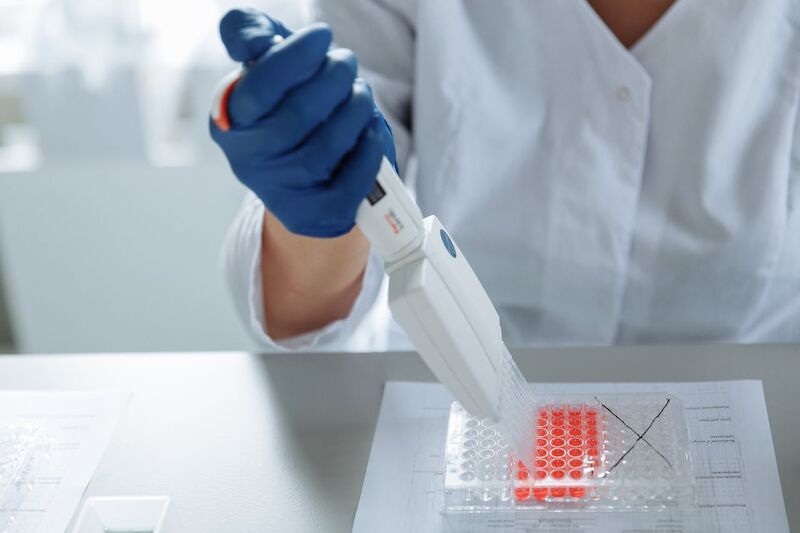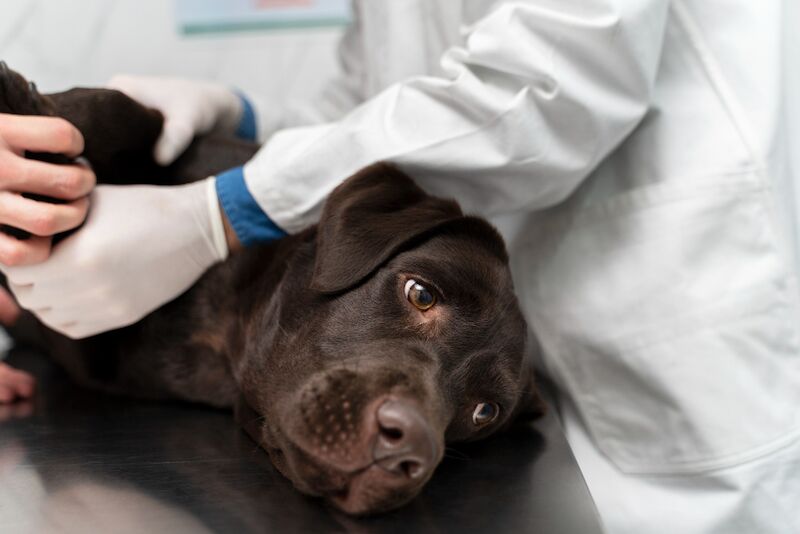
What Are DNA Tests?
DNA tests examine a dog's genes to check for inherited health conditions. These tests help breeders avoid pairing dogs that could pass on serious health issues, and help buyers choose a healthy puppy with more confidence.
DNA results typically show whether a dog is:
- Clear - doesn't carry the condition
- Carrier - carries the gene but won't develop symptoms
- Affected - will develop or is at high risk of the condition
Why DNA Testing Matters for Labradors
Labrador Retrievers are one of the UK's most popular breeds - but they are also known to carry a number of inherited health conditions. DNA testing allows breeders to:
- Prevent passing on painful or life-limiting conditions
- Plan safe and responsible litters
- Show transparency to potential buyers
For buyers, DNA-tested parents offer peace of mind and long-term savings on vet bills.
Key DNA Tests for Labrador Retrievers
Below are the most important DNA tests for Labs, with a simple explanation of each condition:
CNM (Centronuclear Myopathy)
Affects muscle development and movement. Puppies may appear weak, have trouble walking, or show poor muscle tone. It's a serious, lifelong condition if inherited from both parents.
- Dogs that are clear or carriers should only be bred with clear dogs.
EIC (Exercise-Induced Collapse)
A condition where a dog may suddenly collapse after intense exercise. Affected dogs often look healthy but can experience serious episodes during excitement or activity.
- Often seen in working Labradors or those with high energy levels.
HNPK (Hereditary Nasal Parakeratosis)
Affects the nose, causing it to become dry, cracked, and sometimes painful. While not life-threatening, it can lead to infections or discomfort.
MCD (Macular Corneal Dystrophy)
An inherited eye disorder that causes cloudy spots on the cornea, leading to vision issues. It usually develops gradually.
- There's no cure, but it can be avoided through careful breeding.
prcd-PRA (Progressive Retinal Atrophy)
A genetic condition that causes gradual blindness. Often starts with night blindness before progressing.
- Carriers don't show symptoms but can still pass it on.
SD2 (Skeletal Dysplasia 2)
A mild form of dwarfism in Labradors. Affected dogs typically have shorter legs, which can affect mobility and appearance.
- A cosmetic issue for some, but best avoided where possible.
STGD (Stargardt Disease)
A form of inherited retinal degeneration that causes progressive vision loss. This is a newer test now being offered by responsible breeders.
How to Check DNA Test Results
If you're buying a KC-registered Labrador puppy, you should:
- Ask for official DNA test certificates from the breeder
- Look up the results using The Kennel Club Health Test Results Finder
- View health details on the advert listings (when breeders upload them)
A responsible Labrador breeder will DNA test both the sire and dam for all of the above conditions - and should be able to provide clear results. Always ask if you're unsure.
Also read our Labrador Health Screening Schemes guide to learn about hip and elbow scores, eye tests, and more.


